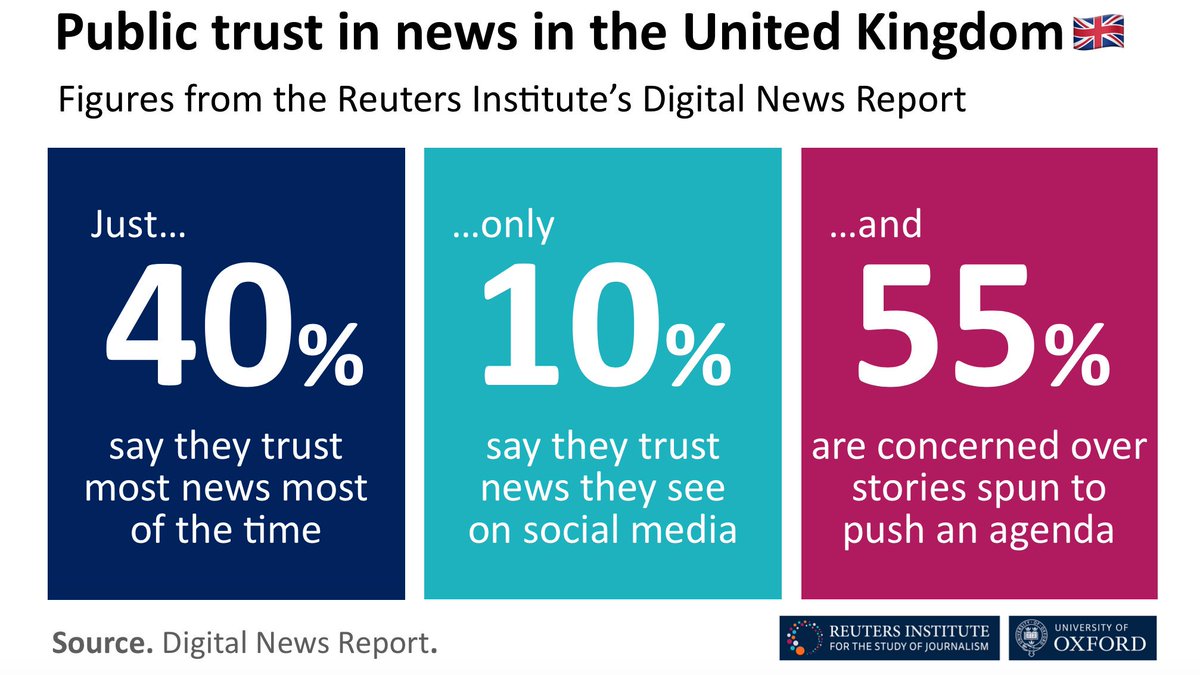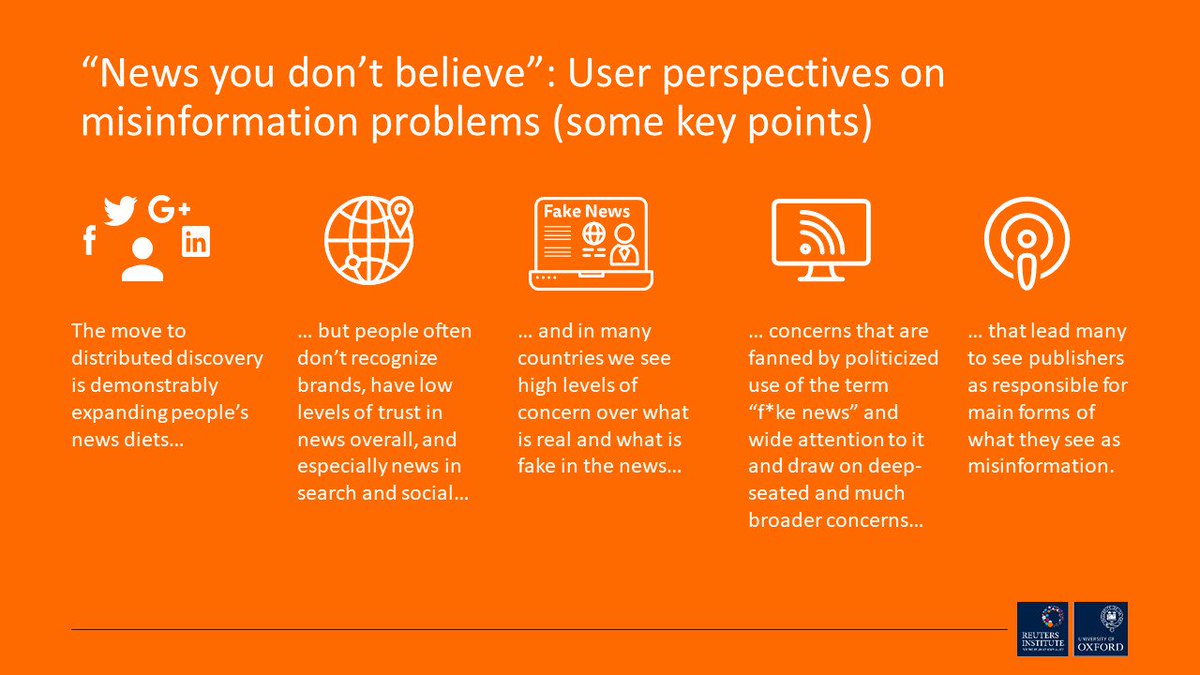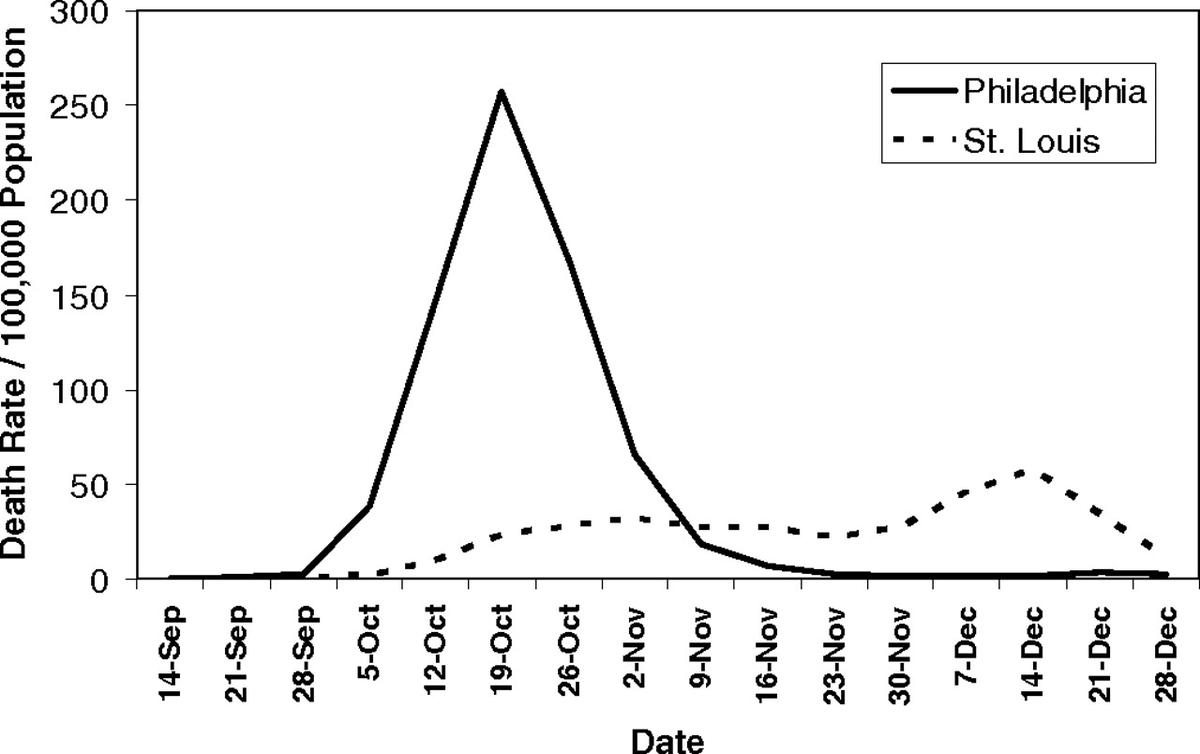Gave first of our #RISJwebinars today, summarizing some of our existing research, work by others, and seminars w/public health experts from @UniofOxford. Key points in thread 1/9
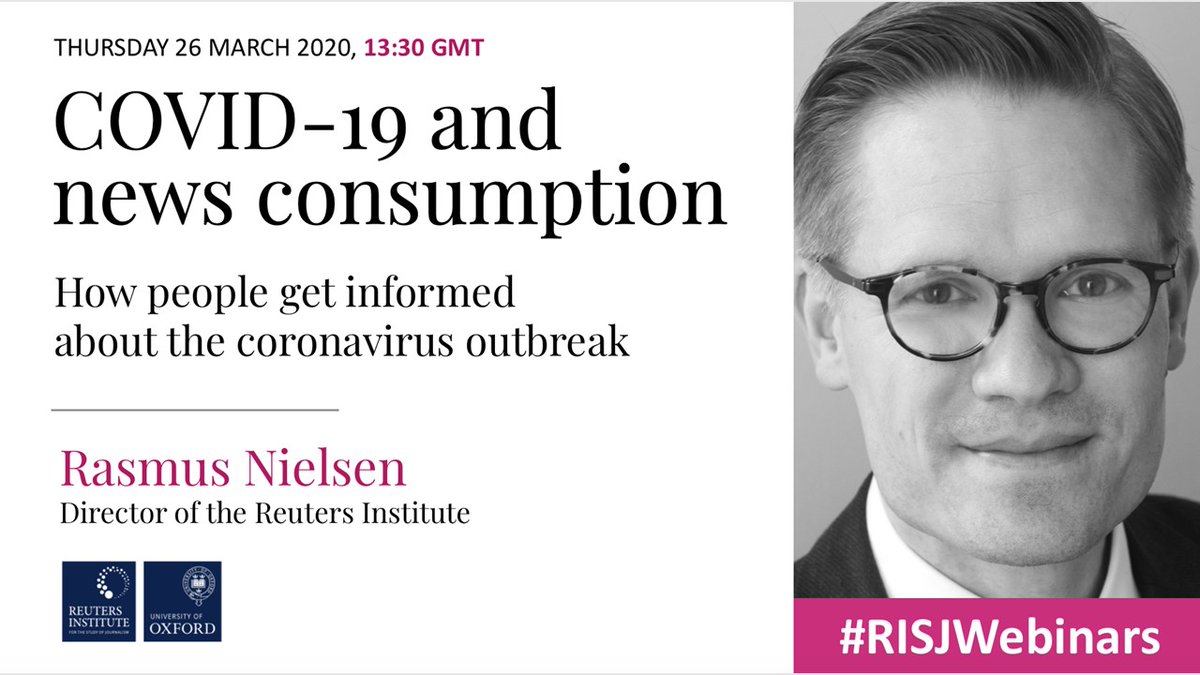
(Data from 2019 digitalnewsreport.org) 2/9
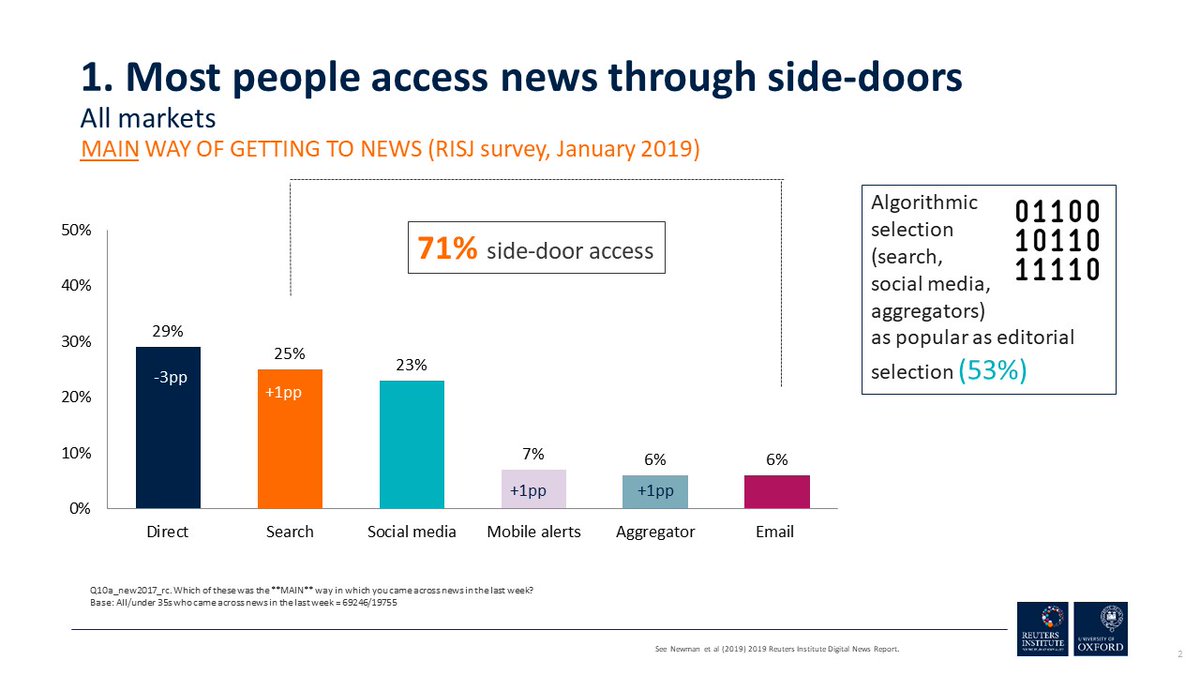
3/9
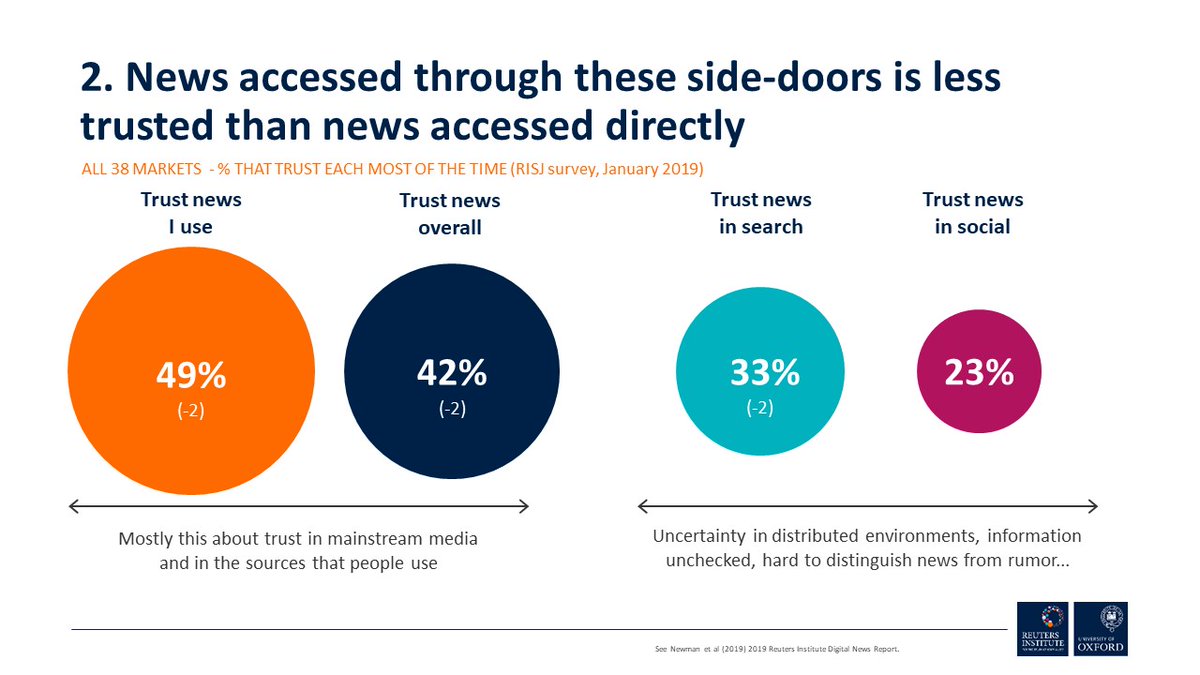
4/9
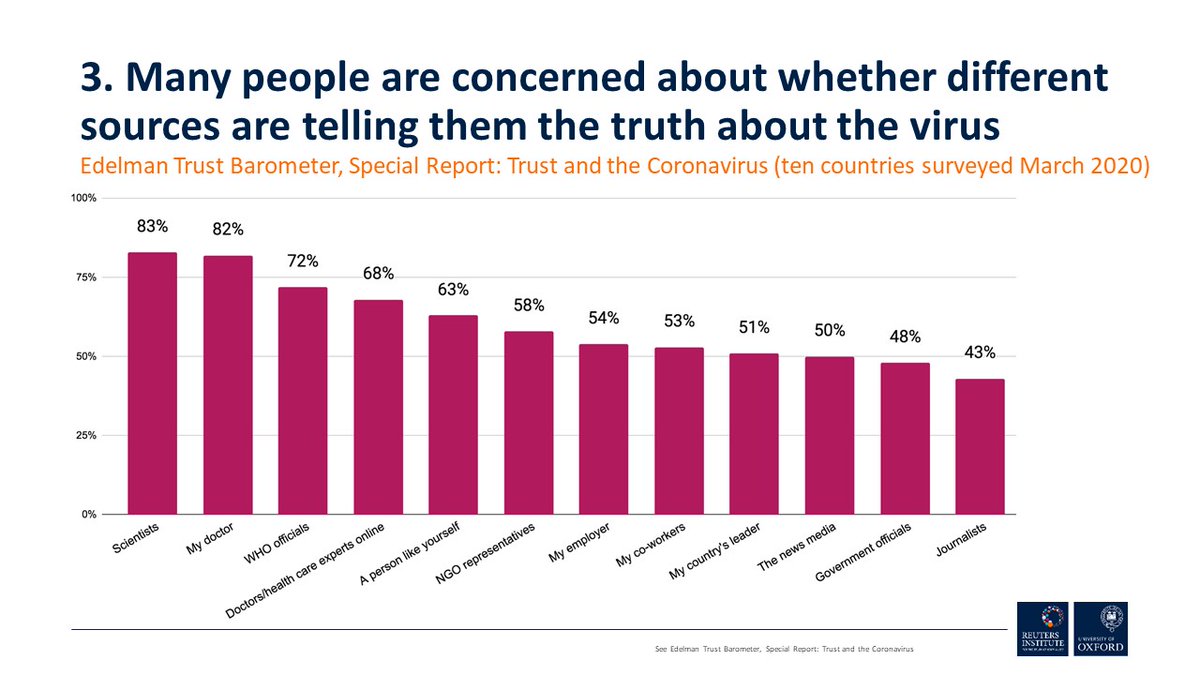
7/9
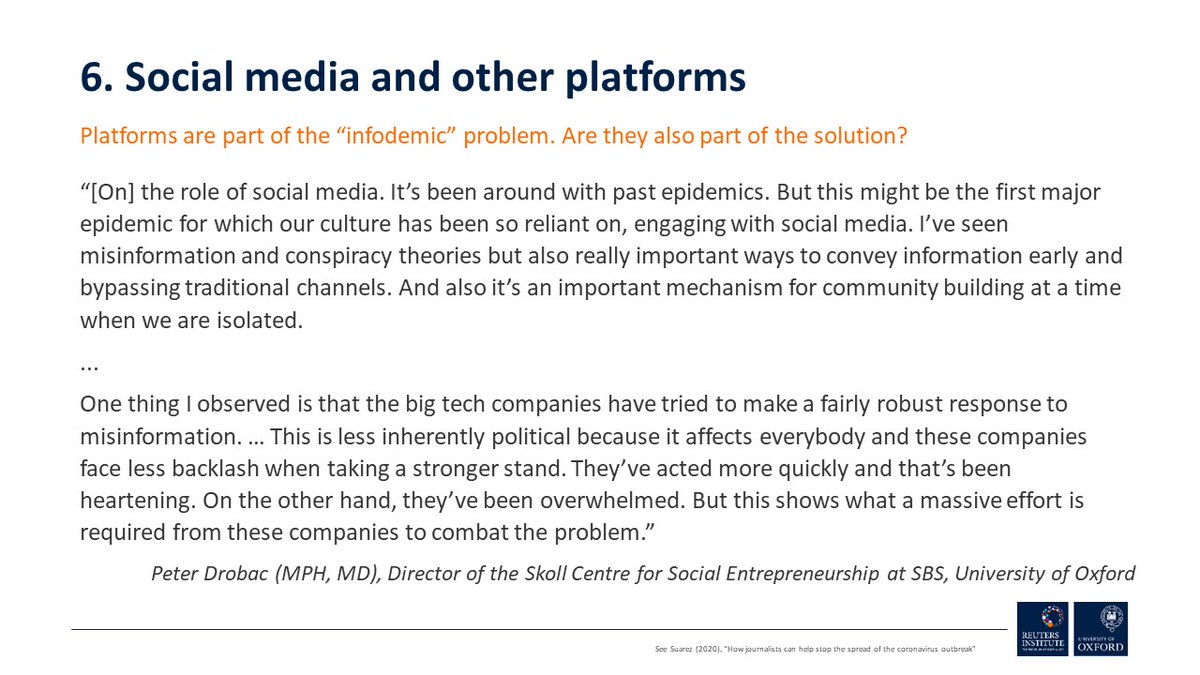
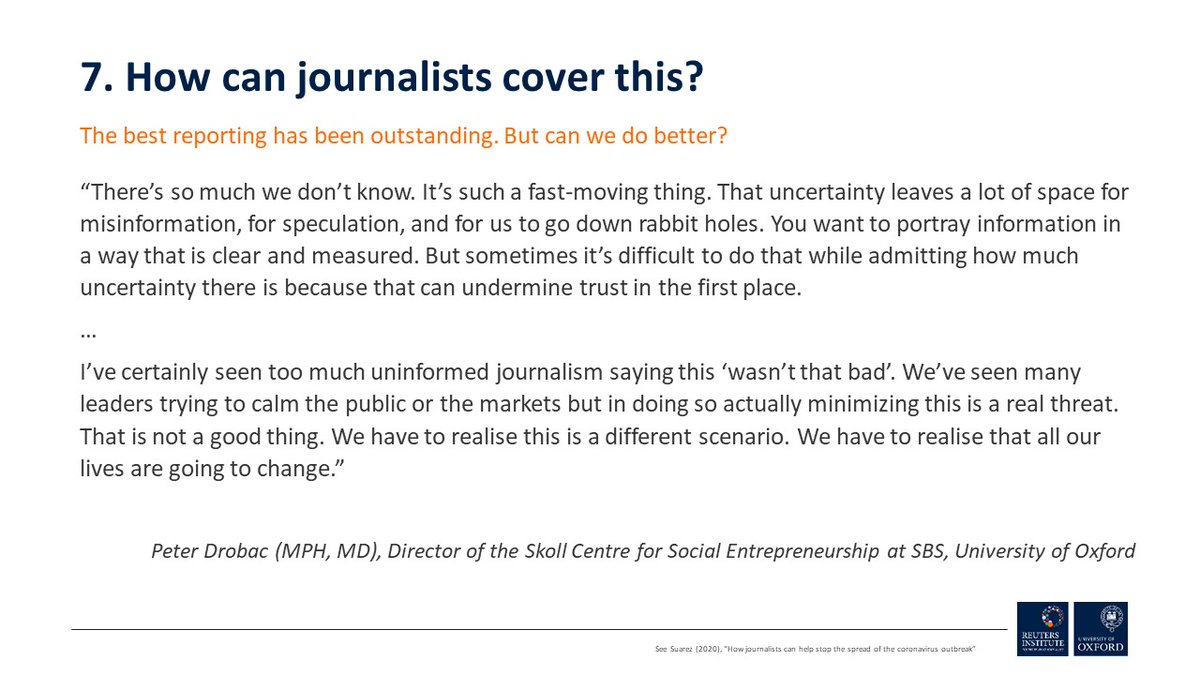
Underlying work summarized here, w/links to other resources, including tips from @firstdraftnews @Poynter @TheLancet and more: reutersinstitute.politics.ox.ac.uk/risj-review/co…
9/9






